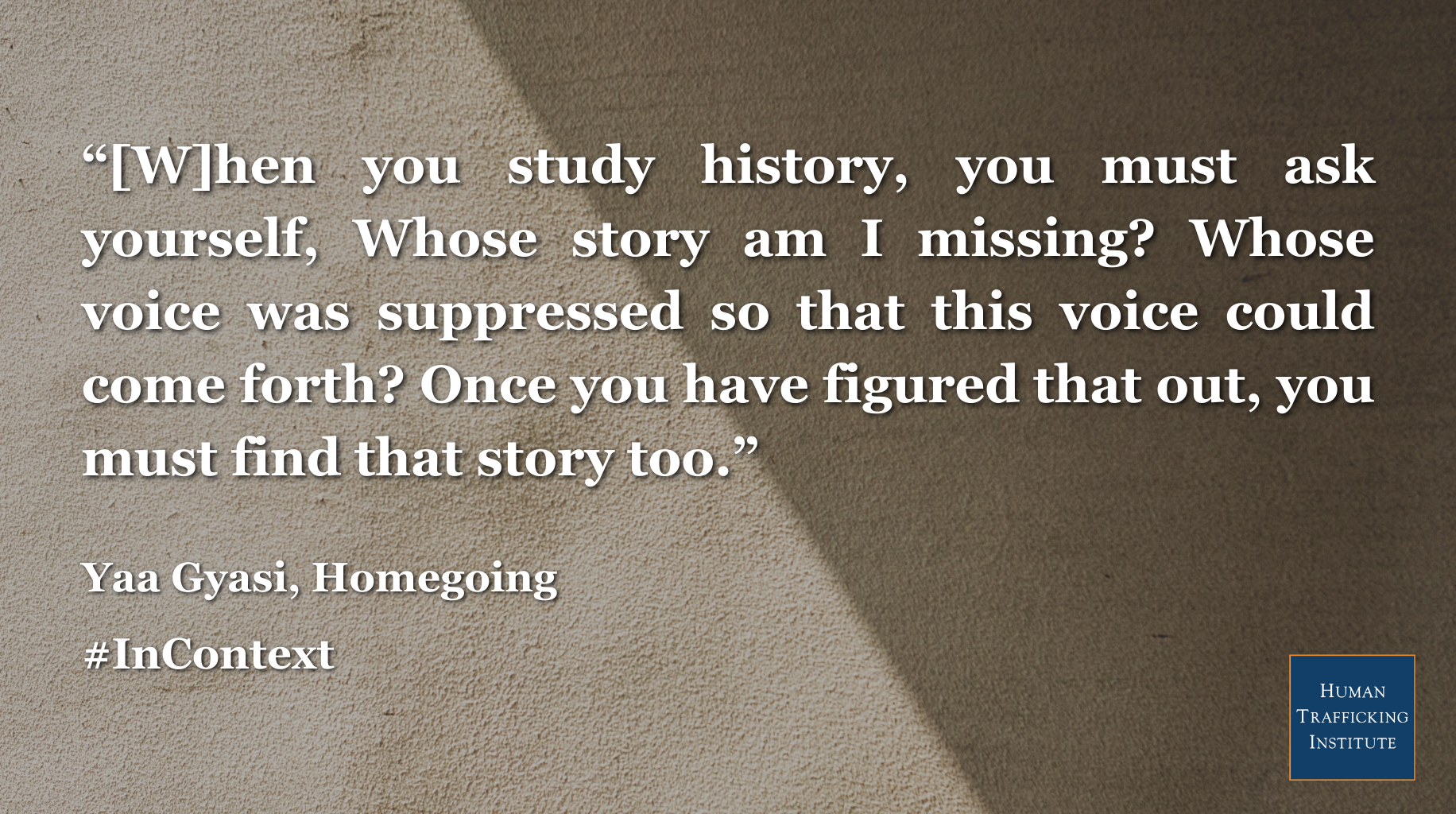“[W]hen you study history, you must ask yourself, Whose story am I missing? Whose voice was suppressed so that this voice could come forth? Once you have figured that out, you must find that story too.”
– Yaa Gyasi, Homegoing
Yaa Gyasi, who was born in Ghana, dealt with moving to the United States by finding solace in reading. Her love for literature led to her first novel, Homegoing, which follows eight generations of two branches of a family—one in Ghana and one in the U.S.—from the inception of the Trans-Atlantic slave trade to the present day. The narratives of the family living in the U.S. should be familiar to any student of American history—they describe slavery, segregation, racism, and civil rights, among other themes. Importantly, the novel deepens the reader’s understanding of the devastating and long-lasting impacts of the slave trade not only in the U.S. but also in Ghana. The novel outlines how the slave trade interacts with tribal tensions, gender roles, family, culture, and tradition.
Moreover, the novel illustrates how generational trauma endures over centuries. It traces the evolution of trauma and oppression from the eighteenth century to the present, all the while reflecting on the inherent bias of history—that it is built on the words of others, and specifically, the words of the powerful. Yaw, a Ghanaian history teacher in the novel who eventually moves to Alabama with his wife and daughter, instructs his high school students:
“We believe the one who has the power. He is the one who gets to write the story. So when you study history, you must ask yourself, Whose story am I missing? Whose voice was suppressed so that this voice could come forth? Once you have figured that out, you must find that story too. From there, you begin to get a clearer, yet still imperfect, picture.”
This quote captures the power of stories and the danger if this power is used to cover up injustices. Gyasi works to uncover these cover-ups by highlighting less well-known stories—though fictional—to create a more complete, less one-sided account of history.
Gyasi’s analysis and approach to history is consistent with what William Quigley wrote in his “Letter to a Law Student Interested in Social Justice:”
“All laws are made by those with power…If you are interested in real social justice, you must seek out the voices of the people whose voices are not heard in the halls of Congress or in the marbled courtrooms.”
Gyasi, like Quigley, advises readers to approach the loudest, most accessible voices with skepticism, and to promote equality through empowering the voices rarely heard. This approach is critical to understand history, but also to understand complex issues such as human trafficking.
Human trafficking has likely always existed in some form, and for almost as long, the voices of trafficked persons have too often been absent from the historical record. Today, many anti-trafficking organizations recognize the importance of amplifying survivor voices that were once suppressed, especially since survivors possess an invaluable perspective on the topic of trafficking. Initiatives such as the formation of the U.S. Advisory Council on Human Trafficking, a formal platform for trafficking survivors to advise on federal anti-trafficking policies, correspond with the reality that voices of trafficked persons should be sought out to inform and guide anti-trafficking efforts.




